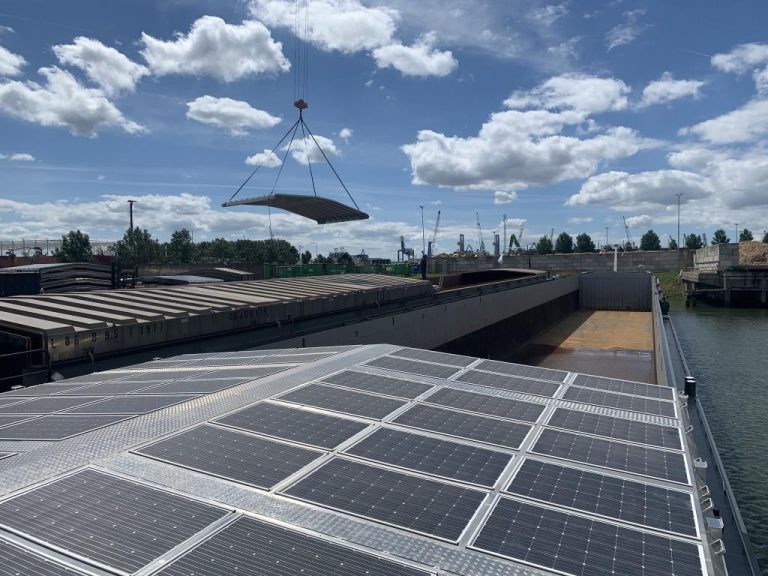Start-up tests solar hatch for inland navigation
The barge De Oleander started sailing through Europe this month with a hatch covered with solar panels. The Wattlab start-up regards it as a practical test.

(Photo: Wattlab)
When they were students, the founders of Wattlab were introduced to solar energy when they were part of the Nuon Solar Team in 2015-2016. They developed a highly efficient lightweight and bendable solar panel and saw applications in the built environment, road transport, and shipping. Since then, their company has focused on tailor-made solar energy systems.
The 48 solar panels on one of De Oleander’s deck hatches, the ‘solar hatch’, is the result of a collaboration with Damen Shipyards and Blommaert Aluminium. Employee Kasper Keizer says that this year will show the practicalities of the hatch. Will all the connections remain intact and will the special hatch not be an obstacle during loading and unloading? In short, a practical test.
The yield of one solar hatch is expected to be sufficient to reduce the need to run the generator. If all the hatches are replaced by solar hatches, a hybrid drive could save 10% fuel.
Do you have a question or comment about this article?
j.w.wassink@tudelft.nl

Comments are closed.